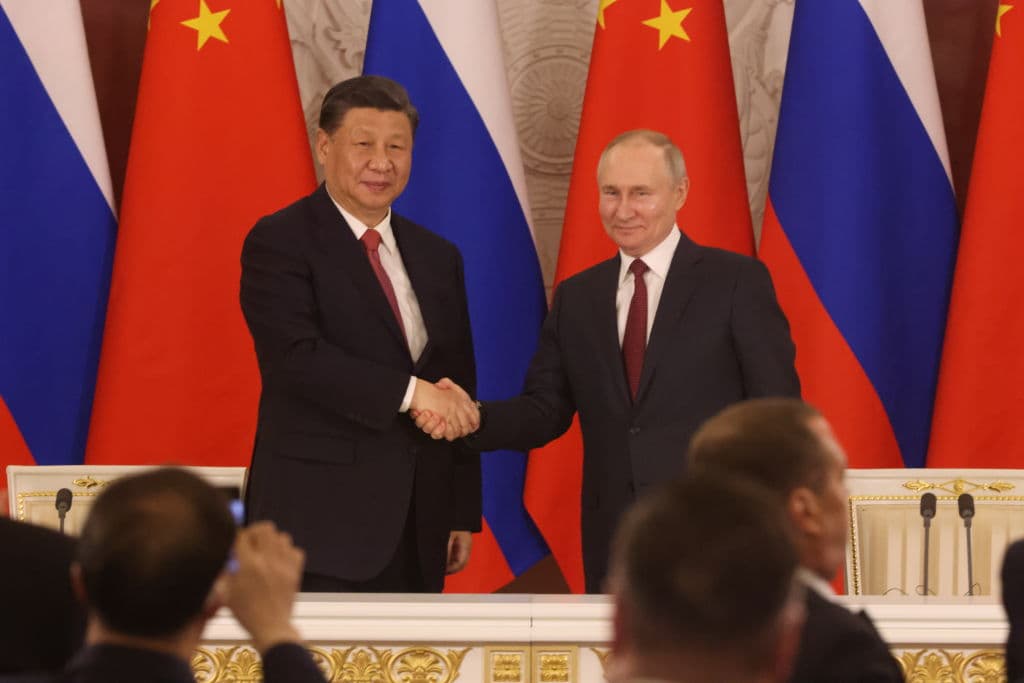CNN: Putin says China's ‘peace plan' could serve as basis for Ukraine war settlement

Russian dictator Vladimir Putin said on March 21, as cited by CNN, that China's so-called peace plan "can be taken as the basis for a peaceful settlement" of Russia's war against Ukraine "when the West and Kyiv are ready for it."
At a joint news conference with Chinese leader Xi Jinping in Moscow, Putin said he "believes in many of the points" of Beijing's proposal, criticized by Ukraine's Western allies.
Beijing's 12-point plan calls on all parties to respect the sovereignty of all nations, safeguard nuclear facilities, facilitate grain exports, and protect civilians and prisoners of war. However, the statement also urges abandoning "the Cold War mentality" and "stopping unilateral sanctions," rhetoric frequently used by Beijing to criticize the West's response to Russia's war.
China has so far refused to condemn Russia's aggression against Ukraine and annexation of Ukrainian territories, which is at odds with the respect for international law and sovereignty outlined in the plan.
President Volodymyr Zelensky earlier said he did not consider China's proposal a peace plan, adding that the document included respect for international law, which already made it possible to work with China.
In its press release published following the March 21 meeting of Xi and Putin, the Chinese Foreign Ministry cited both sides saying the "legitimate security concerns of all countries" must be respected, again failing to condemn Russia's full-scale invasion of Ukraine and to indicate the aggressor clearly.
According to the ministry, the two leaders signed a statement on "deepening the comprehensive strategic partnership" between Russia and China during Xi's first visit to Moscow since the beginning of the all-out war against Ukraine.
Russian state-controlled media outlet RIA Novosti reported the signing of another document on economic cooperation.
On the same day, NATO Secretary General Jens Stoltenberg said, as quoted by CNN, that the alliance has "seen some signs" that Russia has asked China to provide lethal aid for its war.
He added there was no evidence of China supplying Russia with lethal weapons, but Moscow's request was being considered by the Chinese authorities, according to NATO's information.
"We see how China and Russia are coming closer and closer in the military domain — joint exercises, joint patrols, naval and air patrols — in the economic domain and also in the political and diplomatic domain," Stoltenberg told a news conference in Brussels.
"So the meeting in Moscow is part of that pattern where China and Russia are working more and more closely and building a stronger and stronger partnership."










